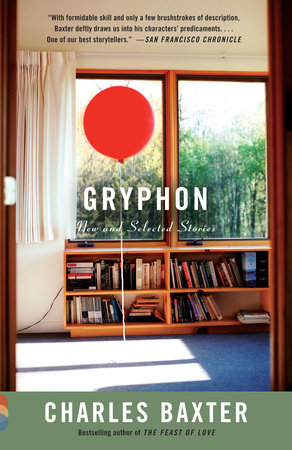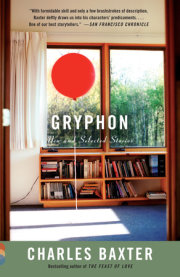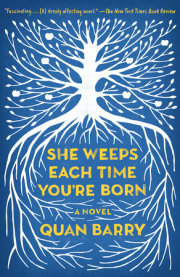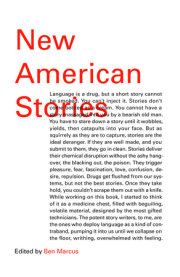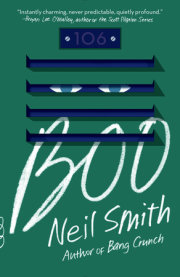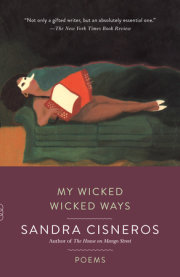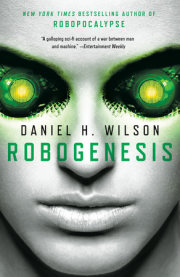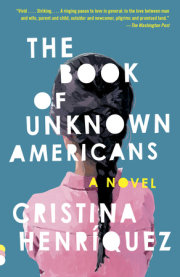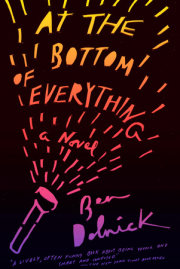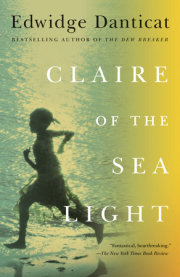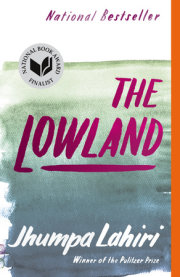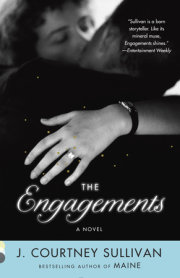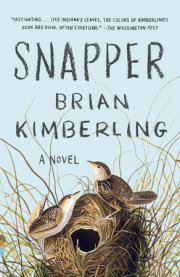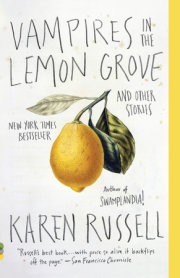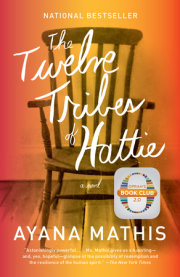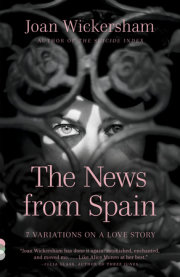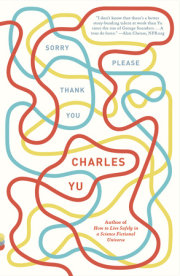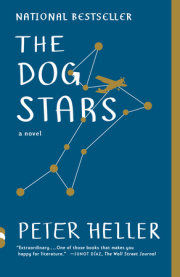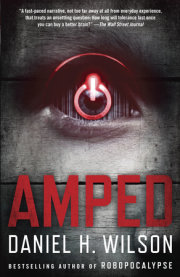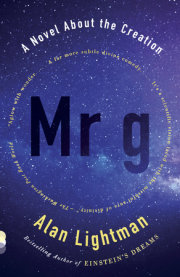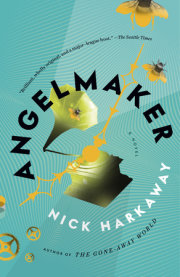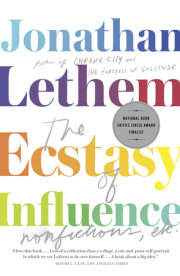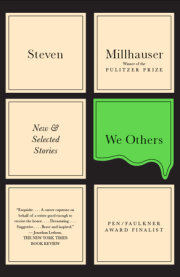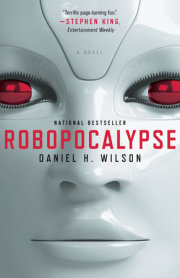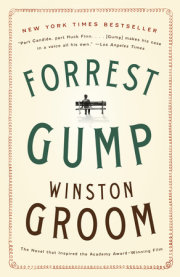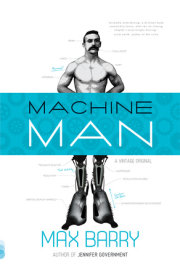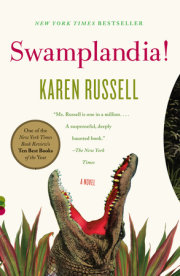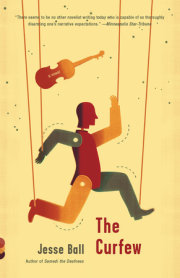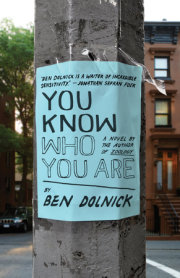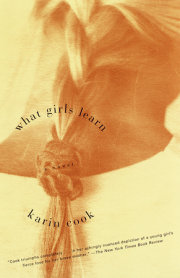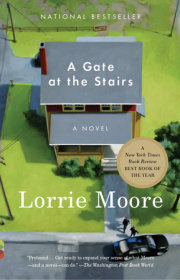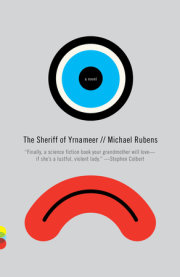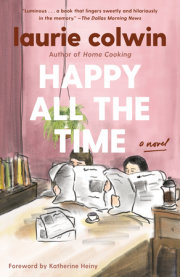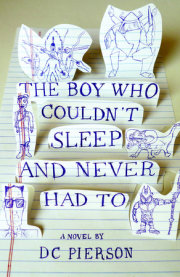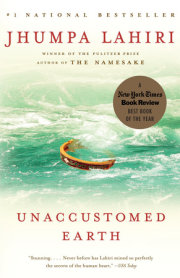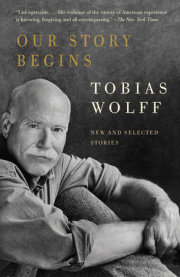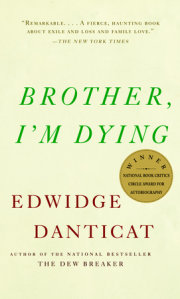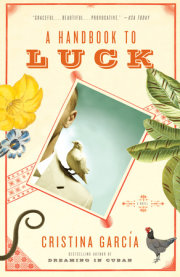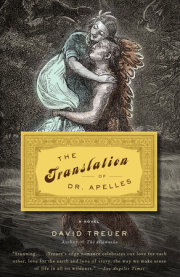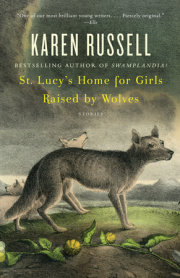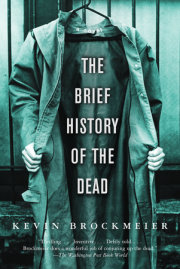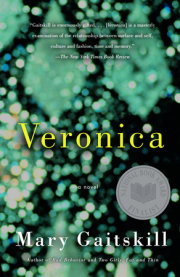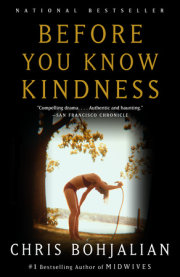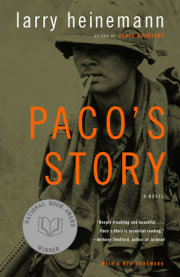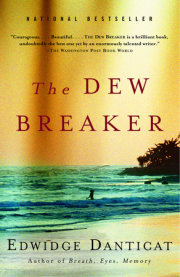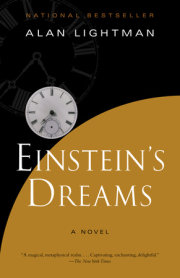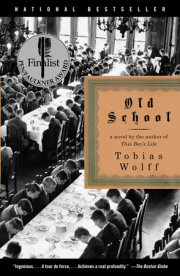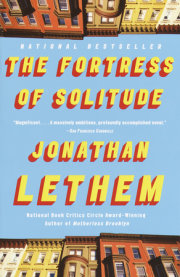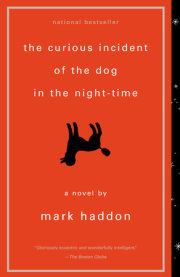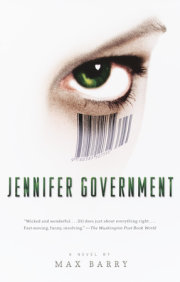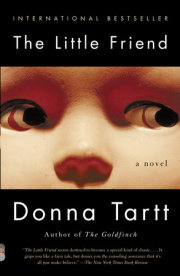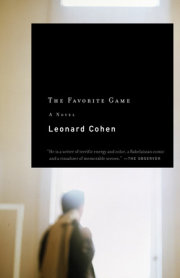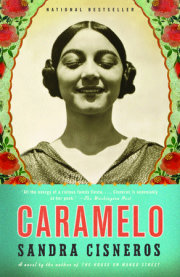The Next Building I Plan to Bomb
In the parking lot next to the bank, Harry Edmonds saw a piece of gray scrap paper the size of a greeting card. It had blown up next to his leg and attached itself to him there. Across the top margin was some scrabby writing in purple ink. He picked it up and examined it. On the upper left-hand corner someone had scrawled the phrase THE NEXT BUILDING I PLAN TO BOMB. Harry unfolded the paper and saw an inked drawing of what appeared to be a sizable train station or some other public structure, perhaps an airport terminal. In the drawing were arched windows and front pillars but very little other supporting detail. The building looked solid, monumental, and difficult to destroy.
He glanced around the parking lot. There he was in Five Oaks, Michigan, where there were no such buildings. In the light wind other pieces of paper floated by in an agitated manner. One yellow flyer was stuck to a fire hydrant. On the street was the daily crowd of bankers, lawyers, shoppers, and students. As usual, no one was watching him or paying much attention to him. He put the piece of paper into his coat pocket.
All afternoon, while he sat at his desk, his hand traveled down to his pocket to touch the drawing. Late in the day, half as a joke, he showed the paper to the office receptionist.
“You’ve got to take it to the police,” she told him. “This is dangerous. This is the work of a maniac. That’s LaGuardia there, the airport? In the picture? I was there last month. I’m sure it’s LaGuardia, Mr. Edmonds. No kidding. Definitely LaGuardia.”
So at the end of the day, before going home, he drove to the main police station on the first floor of City Hall. Driving into the sun, he felt his eyes squinting against the burrowing glare. He had stepped inside the front door when the waxy bureaucratic smell of the building hit him and gave him an immediate headache. A cop in uniform, wearing an impatient expression, sat behind a desk, shuffling through some papers, and at that moment it occurred to Harry Edmonds that if he showed what was in his pocket to the police he himself would become a prime suspect and an object of intense scrutiny, all privacy gone. He turned on his heel and went home.
***
At dinner, he said to his girlfriend, “Look what I found in a parking lot today.” He handed her the drawing.
Lucia examined the soiled paper, her thumb and finger at its corner, and said, “ ‘The next building I plan to bomb.’ ” Her tone was light and urbane. She sold computer software and was sensitive to gestures. Then she said, “That’s Union Station, in Chicago.” She smiled. “Well, Harry, what are you going to do with this? Some nutcase did this, right?”
“Actually, I got as far as the foyer in the police station this afternoon,” he said. “Then I turned around. I couldn’t show it to them. I thought they’d suspect me or something.”
“Oh, that’s so melodramatic,” she said. “You’ve never committed a crime in your life. You’re a banker, for Chrissake. You’re in the trust department. You’re harmless.”
Harry sat back in his chair and looked at her. “I’m not that harmless.”
“Yes, you are.” She laughed. “You’re quite harmless.”
“Lucia,” he said, “I wish you wouldn’t use that word.”
“ ‘Harmless’? It’s a compliment.”
“Not in this country, it isn’t,” he said.
On the table were the blue plates and matching napkins and the yellow candles that Lucia brought out whenever she was proud of what she or Harry had cooked. Today it was Burmese chicken curry. “Well, if you’re worried, take it to the cops,” Lucia told him. “That’s what the cops are there for. Honey,” she said, “no one will suspect you of anything. You’re handsome and stable and you’re my sweetie, and I love you, and what else happened today? Put that awful creepy paper back into your pocket. How do you like the curry?”
“It’s delicious,” he said.
***
After Harry had gotten up his nerve sufficiently to enter the police station again, he walked in a determined manner toward the front desk. After looking carefully at the drawing and the inked phrase, and writing down Harry Edmonds’s name and address, the officer, whose badge identified him as Sergeant Bursk, asked, “Mr. Edmonds, you got any kids?”
“Kids? No, I don’t have kids. Why?”
“Kids did this,” Sergeant Bursk told him, waving the paper in front of him as if he were drying it off. “My kids could’ve done this. Kids do this. Boys do this. They draw torture chambers and they make threats and what-have-you. That’s what they do. It’s the youth. But they’re kids. They don’t mean it.”
“How do you know?”
“Because I have three of them,” Sergeant Bursk said. “I’m not saying that you should have kids, I’m just saying that I have them. I’ll keep this drawing, though, if you don’t mind.”
“Actually,” Harry said, “I’d like it back.”
“Okay,” Sergeant Bursk said, handing it to him, “but if we hear of any major bombings, and, you know, large-scale serious death, maybe we’ll give you a call.”
“Yeah,” Harry said. He had been expecting this. “By the way,” he asked, “does this look like any place in particular to you?”
The cop examined the picture. “Sure,” he said. “That’s Grand Central. In New York, on Forty-second Street, I think. I was there once. You can tell by the clock. See this clock here?” He pointed at a vague circle. “That’s Grand Central, and this is the big clock that they’ve got there on the front.”
***
“The f**k it is,” the kid said. The kid was in bed with Harry Edmonds in the Motel 6. They had found each other in a bar downtown and then gone to this motel, and after they were finished, Harry drew the drawing out of his pants pocket on the floor and showed it to him. The kid’s long brown hair fell over his eyes and, loosened from its ponytail, spread out on the pillow. “I know this f**king place,” the kid said. “I’ve, like, traveled, you know, all over Europe. This is in Europe, this place, this is f**king Deutschland we’re talking about here.” The kid got up on his elbows to see better. “Oh, yeah, I remember this place. I was there, two summers ago? Hamburg? This is the Dammtor Bahnhof.”
“Never heard of it,” Harry Edmonds said.
“You never heard of it ’cause you’ve never been there, man. You have to f**king be there to know about it.” The kid squinched his eyebrows together like a professor making a difficult point. “A bahnhof, see, is a train station, and the Dammtor Bahnhof is, like, one of the stations there, and this is the one that the Nazis rounded up the Jews to. And, like, sent them off from. This place, man. Absolutely. It’s still standing. This one, it f**king deserves to be bombed. Just blow it totally the f**k away, off the face of the earth. That’s just my opinion. It’s evil, man.”
The kid moved his body around in bed, getting himself comfortable again after stating his opinions. He was slinky and warm, like a cat. The kid even made back-of-the-throat noises, a sort of satisfied purr.
***
“I thought we were finished with that,” Harry’s therapist said. “I thought we were finished with the casual sex. I thought, Harry, that we had worked through those fugitive impulses. I must tell you that it troubles me that we haven’t. I won’t say that we’re back to square one, but it is a backward step. And what I’m wondering now is, why did it happen?”
“Lucia said I was harmless, that’s why.”
“And did that anger you?”
“You bet it angered me.” Harry sat back in his chair and looked directly at his therapist. He wished she would get a new pair of eyeglasses. These eyeglasses made her look like one of those movie victims killed within the first ten minutes, right after the opening credits. One of those innocent bystanders. “Bankers are not harmless, I can assure you.”
“Then why did you pick up that boy?” She waited. When he didn’t say anything, she said, “I can’t think of anything more dangerous to do.”
“It was the building,” Harry said.
“What building?”
“I showed Lucia the building. On the paper. This paper.” He took it out of his pocket and handed it to his therapist. By now the paper was becoming soft and wrinkled. While she studied the picture, Harry watched the second hand of the wall clock turn.
“You found this?” she asked. “You didn’t draw this.”
“Yes, I found it.” He waited. “I found it in a parking lot six blocks from here.”
“All right. You showed Lucia this picture. And perhaps she called you harmless. Why did you think it so disturbing to be called harmless?”
“Because,” Harry said, “in this country, if you’re harmless, you get killed and eaten. That’s the way things are going these days. That’s the current trend. I thought you had noticed. Perhaps not.”
“And why do you say that people get killed and eaten? That’s an extravagant metaphor. It’s a kind of hysterical irony.”
“No, it isn’t. I work in a bank and I see it happen every day. I mop up the blood.”
“I don’t see what this has to do with picking up young men and taking them to motels,” she said. “That’s back in the country of acting out. And what I’m wondering is, what does this mean about your relationship with Lucia? You’re endangering her, you know.” As if to emphasize the point, she said, “It’s wrong, what you did. And very, very dangerous. With all your thinking, did you think about that?”
Harry didn’t answer. Then he said, “It’s funny. Everybody has a theory about what that building is. You haven’t said anything about it. What’s your theory?”
“This building?” Harry’s therapist examined the paper through her movie- victim glasses. “Oh, it’s the Field Museum, in Chicago. And that’s not a theory. It is the Field Museum.”
***
On Wednesday, at three a.m., Harry fixed his gaze on the bedroom ceiling. There, as if on a screen, shaped by the light through the curtains luffing in the window, was a public building with front pillars and curved arched windows and perhaps a clock. On the ceiling the projected sun of Harry’s mind rose wonderfully, brilliantly gold, one or two mind-wisp cumulus clouds passing from right to left across it, but not so obscured that its light could not penetrate the great public building into which men, women, and children—children in strollers, children hand in hand with their parents—now filed, shadows on the ceiling, lighted shadows, and for a moment Harry saw an explosive flash.
Harry Edmonds lay in his bed without sleeping. Next to him was his girlfriend, whom he had planned to marry, once he ironed out a few items of business in his personal life and got them settled. He had made love to her, to this woman, this Lucia, a few hours earlier, with earnest caresses, but now he seemed to be awake again. He rose from bed and went down to the kitchen. In the harsh fluorescence he ate a cookie and on an impulse turned on the radio. The radio blistered with the economy of call- in hatred and religion revealed to rabid-mouthed men who now gasped and screamed into all available microphones. He adjusted the dial to a call-in station. Speaking from Delaware, a man said, “There’s a few places I’d do some trouble to, believe me, starting with the Supreme Court and moving on to a clinic or two.” Harry snapped off the radio.
Now he sits in the light of the kitchen. He feels as dazed as it is possible for a sane man to feel at three thirty in the morning. I am not silly, nor am I trivial, Harry says to himself, as he reaches for a pad of paper and a no. 2 pencil. At the top of the pad, Harry writes, “The next place I plan to bomb,” and then very slowly, and with great care, begins to draw his own face, its smooth cleanshaven contours, its courteous half smile. When he perceives his eyes beginning to water, he rips off the top sheet with his picture on it and throws it in the wastebasket. The refrigerator seems to be humming some tune to him, some tune without a melody, and he flicks off the overhead light before he recognizes that tune.
***
It is midday in downtown Five Oaks, Michigan, the time for lunch and rest and conversation, and for a remnant, a lucky few, it may be a time for love, but here before us is Harry Edmonds, an officer in the trust department at Southeastern Michigan Bank and Trust, standing on a street corner in a strong spring wind. The wind pulls at his tie and musses his hair. Nearby, a recycling container appears to have overturned, and sheets of paper, hundreds of them, papers covered with drawings and illustrations and words, have scattered. Like a flock of birds, they have achieved flight. All around Harry Edmonds they are gripped in this whirlwind and flap and snap in circles. Some stick to him. There are glossy papers with perfumed inserts, and there are yellowing papers with four-color superheroes, and there are the papers with attractive unclothed airbrushed bodies, and there are the papers with bills and announcements and loans. Here are the personals, swirling past, and there a flyer for a home theater big-screen TV. Harry Edmonds, a man uncertain of the value of his own life, who at this moment does not know whether his life has, in fact, any importance at all, or any future, lifts his head in the wind, increasing in volume and intensity, and for a moment he imagines himself being blown away. From across the street, the way he raises his head might appear, to an observer, as a posture of prayer. God, it is said, resides in the whirlwind, and certainly Harry Edmonds’s eyes are closed and now his head is bowed. He does not move forward or backward, and it is unclear from the expression on his face whether he is making any sort of wish. He remains stationary, on this street corner, while all about him the papers fly first toward him, and then away.
A moment later he is gone from the spot where he stood. No doubt he has returned to his job at the bank, and that is where we must leave him.
Copyright © 2011 by Charles Baxter. All rights reserved. No part of this excerpt may be reproduced or reprinted without permission in writing from the publisher.

